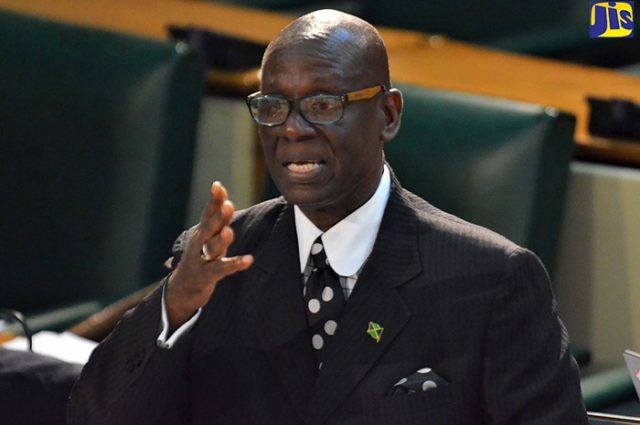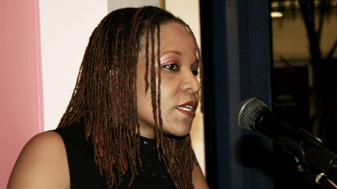Debate Begins on Building Bill
Debate on the Building Bill, which seeks to establish a modern legislative framework that will serve to reduce the vulnerability of Jamaica’s built environment and ensure public safety, began in the House of Representatives yesterday (June 6).
In his remarks, Minister of Local Government and Community Development, Hon. Desmond McKenzie, who piloted the Bill, said it not only creates and maintains standards for construction, and the maintenance of physical structures across the country, but it is also a comprehensive approach to the development of the built environment in the country and the promotion of sustainable development.
He noted that this approach is significant for what it prevents and also for what it facilitates.
The Minister said that one of the most important restrictions in the Bill is that of adverse possession, otherwise known as squatting, which continues to be a grave problem facing the country.
“While the issue surrounding squatting has been extensively discussed, the ongoing challenge for residents and for the Government of the day is significant. There is the continuous threat of injury and death through flooding and land slippage that accompanies the squatting in low and high areas, respectively,” Mr. McKenzie said.
He added that aligned to these issues are the social and capital losses, noting that provisions of the Bill will help to reduce and prevent squatting in Jamaica and to make the urban and rural spaces much safer.
The Minister said the Bill should be seen as a critical companion to other legislation, such as the Disaster Risk Management Act, the Local Governance Act and the Local Government Financing and Financial Management Act.
“The Building Bill emphasises the importance of local government to national order and development by, among other things, vesting local authorities with regulatory powers within their jurisdictions. It also gives them the discretion to seek public- and private-sector expertise, to ensure that internationally recognised engineering standards and practices govern all construction practices,” he explained.
He said the connection between the management of construction activities and the prevention of land use in designated areas, which are generally called ‘no-build zones’, is very clear.
“These are areas where the vulnerability to floods or earthquakes, or other such high-risk disasters, is so great that mitigation efforts are either impractical or impossible. Such areas must be abandoned, if currently occupied; banned from use, if unoccupied; or be subjected to highly restricted uses,” he emphasised.
The Minister pointed out that Sections 30 to 32 of the Disaster Risk Management Act are specially connected to the Building Bill as they define, give ministerial powers and make provisions for the creation of ‘specially vulnerable areas, which are the no-build zones.
He said that a number of agencies, including the National Environment and Planning Agency, the National Works Agency, and the Office of Disaster Preparedness and Emergency Management have, over time, been mapping vulnerable communities and areas across the island.
This, he said, is critical to the identification of no-build zones, and to their designation as ‘specially vulnerable areas’.
“Regulations are presently being developed to give practical effect to Part Seven of the Disaster Risk Management Act, which is devoted to specially vulnerable areas. This, aligned with the Building Bill, will help to substantially close the circle of enforcement and compliance that is needed,” the Minister noted.
“We must be proactive and protect and preserve public and private infrastructure, rather than suffer physical and economic losses, as we respond to weather systems year after year,” he added.
The legislation will also streamline the permit application system to eliminate unnecessary referrals and expedite responses; facilitate the introduction of special express services; and ensure the rights of persons with disabilities regarding accessibility, safety and user-friendliness.
It also provides for the establishment of the National Building Code, and identifies the Bureau of Standards Jamaica as the agency that will set the acceptable local and international standards for construction.
In addition, the legislation establishes that the municipal corporations are to be the local building authorities and will be responsible for inspecting, certifying and taking the actions necessary to approve new structures, change existing buildings, or destroy dangerous structures.
Article by: Latonya Linton
Photo from: www.jis.gov.jm




